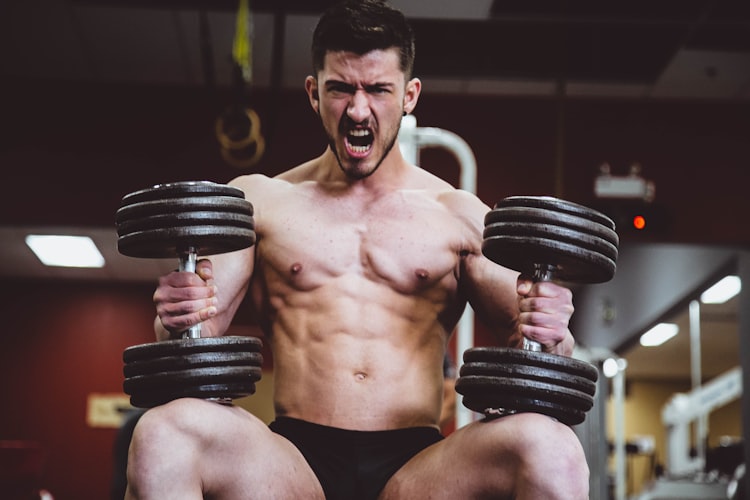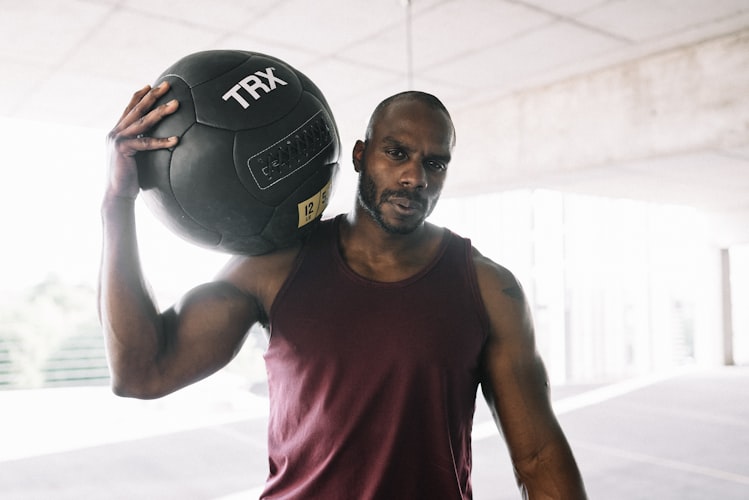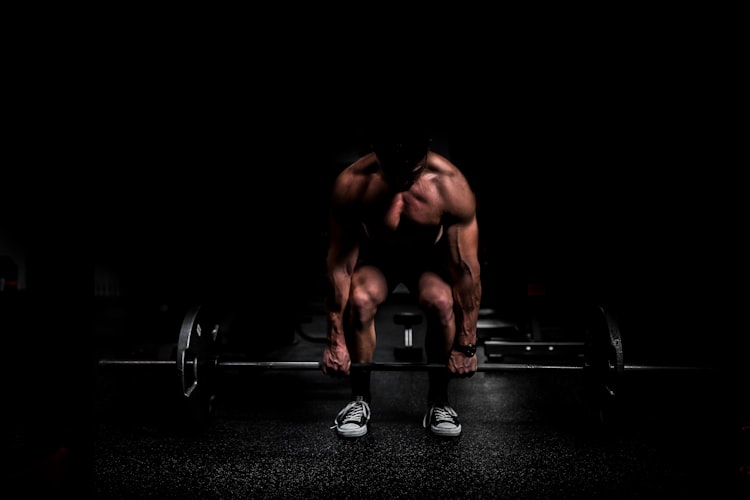
If you’ve ever seen a really muscular man and we’re sure you have, you must have wondered, ‘how does this person tie their shoes?’ With all the muscles in their body bulged up, how does one even bend their arms without having a muscle get in the way? Well, this is a question many weightlifters and those starting weightlifting has. Does weightlifting affect flexibility?
Apart from the first question that comes to mind, you may also be wondering, is it possible to increase flexibility through weight training? On the contrary, you may also be wondering, does lifting weights reduce flexibility? With so many questions arising in the mind of a weight lifter with regards to the effects it may have on their flexibility, we thought it was important to analyse the effects of weightlifting on flexibility. We will look to answer all your questions on weightlifting and flexibility and even point out the best means to adopt to ensure greater flexibility.
Flexibility is defined as the quality of bending easily without breaking. Though the widely accepted meaning of flexibility is associated with being nimble and bendy, the truth of the matter is, flexibility has more to do with the breaking point. For instance, how easy is it for you to bend down and touch your toes? Or, how far down a leg split can you go through without breaking or risking serious muscle damage? This is the easiest way to understand flexibility.
So when you consider the huge muscular men and compare them to men who do yoga, you know that the men who do yoga are definitely more flexible. However, does this mean that the muscular men are not flexible? Not entirely true. Since there are degrees of flexibility, you do need to understand that muscular men are flexible in their own right, considering the huge muscle mass they possess. However, within the truth of the matter, the degree to which flexibility is affected by weightlifting varies based on the load of the weight lifted. Are you a heavy weight lifter or someone who prefers sticking to the 5kg dumbbells?
If you’ve been working with lower weights and would like to understand whether increasing the weight load may decrease your flexibility, you have come to the right place. Though you may be sceptical, during an interview James R. Whitehead, EdD, of WebMD, said, “Our results suggest that the full-range resistance training regimens can improve flexibility as well as, or perhaps better than, typical static stretching regimens.” This goes to imply that weightlifting can increase flexibility. So where does the truth stand? In order to understand better, how weightlifting affects flexibility, we will have to dig a little deeper, so keep reading this word to word.
Does Lifting Weights Reduce Flexibility?
When you consider lifting weights, you should take into consideration size and size does matter in the equation of flexibility. The bigger your muscles get, the less flexible you will become. It will become harder for you to bend down and touch your toes. Though the general bendiness is decreased, you will definitely enjoy greater muscle flexibility.
Though we are inclined to believe that lifting weight reduces flexibility, this is not entirely true. A good weightlifting programme could actually help you increase your flexibility, through a range of full stretching motions, which will help you increase flexibility. When we consider this, we do not speak for the heavy weight lifters who do not care to wonder about flexibility, for they are too involved in building muscle. However, does building muscle affect flexibility?
This again depends on what you define as flexibility. If you speak primarily of muscle flexibility, then lifting weights or strength training does not reduce muscle flexibility, but improves it. However, if you are referring to the general notion of bendiness and the ability to stretch, then yes, the more bulk you add, the less flexible you will become. Think about it, how rare is a hugely built contortionist?
That being the case, if you are considering general weight training to chisel your body and get into shape, then obvious to state you do not stand to reduce your flexibility. The question of flexibility only comes into the equation when you consider huge muscle size. Obvious to state, you won’t find big and bulky guys bending and stretching like a yoga instructor. Just because you do partake in strength training and weight lifting
does not mean you will become huge and bulky overnight. If you are worried about flexibility, there are things you can incorporate into your workouts to help you increase flexibility and bulk up on muscle while improving general flexibility. This again does not apply to the heavy weight lifters, who do stand to become less flexible. However, it is a price that they are willing to pay for greater strength and bigger muscles.
With almost every resource on the internet pointing to the fact that weight training helps to improve muscle flexibility, you do have to keep in mind the actual load of the weight. If you are working with 2 kg dumbells and are not really looking to bulk up, then obvious to state your flexibility will improve though you rely on weight lifting for your workouts. However, if you bench 100kg and squat 150kg, then obvious to state, you are huge and you have come to terms with the fact that you prefer bigger and stronger muscles as opposed to being stretchy, bendy or flexible. Though the truth of the matter is yes, weightlifting does not actually reduce flexibility but helps improve it, we found very few resources that point to the fact that flexibility does decrease with muscle size. Hence if you are worried about how weight training may affect your flexibility, do yourself a solid and keep the load of the weight in mind. The greater the weight lifted, the less flexible you may become.
Can You Be Flexible If You’re Buff?
Yes and no. Buff has various definitions based on various degrees of buffness. You can find a 160-pound buff guy, at the same time, you could also say the 280-pound bodybuilder is buff. Are they both similarly flexible? No. Can you be flexible if you’re buff? Yes.
Flexibility depends on the type of exercises you incorporate into your workout. The more focused you are on bodybuilding and gaining muscle mass, the less focused you will become on the idea of being flexible. As mentioned prior, bodybuilders have sacrificed flexibility in return for greater muscle strength and muscle weight. It isn’t as easy for huge bodybuilders to touch their toes, however, you can find a greater portion of the buff people out there to be able to perform this remedial task.
Hence to answer the question with regards to whether you can be flexible and buff, you have to consider the degree of buffness or in actuality size. As mentioned prior, there are plenty of 160-pound buff guys who are not excessively huge, who do have greater levels of flexibility. In fact, these weight lifters can often time be more flexible than the average Joe. This is because, they regularly partake in strength training exercises, which as mentioned prior can actually help you increase flexibility as opposed to decrease it. For if you define buffness on the basis of muscle definition, then the 160-pound well-sculpted guys are in fact buff.
However, if you are looking for a short and sweet answer with regards to the huge buff guys, then the simple answer is no. You cannot build huge muscles at the same time expect yourself to be bendy, stretchy and flexible. Muscle mass and flexibility are on two varied ends of the spectrum.
Does Weightlifting Increase Flexibility?
A study conducted by Castelo Branco University noticed improved flexibility in all but one measurement when compared between a group that underwent resistance training and a group that underwent static stretching, over a period of 8 weeks; with improved flexibility in favour of the group that underwent resistance training.
This goes to imply that weightlifting can help increase flexibility as opposed to reducing it. The truth of the matter is simple, weight lifting with the proper form requires the repeated moving of muscles, joints and ligaments through a full range of motion, which works to increase flexibility. This again is limited by the load of the weight lifted, in other words, weightlifting does increase flexibility unless you are looking to simply bulk up and add more and more muscles.
There are various exercises that enable you to deeply stretch yourself, including the Dumbbell Fly, Dumbbell Pullover, Romanian Deadlift and Dumbbell Row. The improved flexibility is noticed when partaking in a workout that utilises a full range of motion. Simply doing partial reps or static holds won’t give you the same results on flexibility.
The bottom line is simple, so long as you stay within the norms, you stand to gain flexibility by partaking in weightlifting and strength training. However, if you go beyond the norm and develop such large muscles that limit movement, strength training could work against your goals on flexibility.
If improved flexibility is a body goal for you, you should strike a balance between strength and flexibility, thereby ensuring that you don’t go beyond the norm and build too huge muscles. It is up to you, what you want to achieve. Just remember, muscle mass and flexibility are on two varied ends of the spectrum.
Can You Improve Flexibility Through Weight Lifting?
Yes, you can improve flexibility through weight lifting so long as you don’t go beyond the norm and build such big muscles that would restrict movement.
A study conducted by the University of North Dakota used three groups of individuals. The first group of individuals were set on a weightlifting programme, while the second group of individuals were set on a static stretching programme. The third group was the control group that did nothing. The results illustrated similar levels of improved flexibility between both the weightlifting group and the static stretching group. While the control group that did nothing did not see any improvements in flexibility; as expected. The study went on to conclude that weight lifting could improve flexibility, almost as much as static stretching.
So to simply answer the question, of whether you can improve flexibility through weight lifting; so long as you partake in a workout that incorporates a full range of motion, then yes, you are likely to see improved flexibility. However, once again the declaimer should be placed, that if you build such big muscles so as to restrict movement, you will have to sacrifice flexibility.
Best Exercises For Weightlifters To Increase Flexibility
If you are looking to work on flexibility while weightlifting, it is a bit of a balancing act. You mustn’t over-focus on building muscle mass and forget flexibility. You should be careful when adding more weight to your workouts, because the bigger the weight you lift, the bigger you will become. As mentioned repeatedly in this article, the bigger your muscles get, the closer you will get to building those huge muscles that restrict movement.
Hence, if you are looking to maintain flexibility as you build that perfect physique, then it is advisable to not add too much weight to your workouts. Stick to lighter weights, which will sculpt your body, thereby bringing with it better definition, which obviously will help you improve flexibility.
When it comes to improving flexibility, stretching is your best bet. There are various stretching exercises, which bodybuilding.com has categorised into seven categories.
- Ballistic stretching
- Dynamic stretching
- Active stretching
- Passive (relaxed) stretching
- Static stretching
- Isometric stretching
- PNF stretching
Source: bodybuilding.com
For the purposes of improving flexibility while you weightlift, it is important to incorporate passive stretching (4) and static stretching (5) into your workouts. Passive stretching requires you to assume a position and hold it in place. It is a relaxed stretching technique. Static stretching is greater in intensity and involve the stretching of the muscles to the greatest point and holding that position.
When stretching you don’t have to consider the notion of ‘more is better.’ In fact, if you stretch too hard, you could end up doing more damage than good and could injure yourself. A good stretch usually would require you to hold a position for about 30 seconds. When stretching, understand what your body is ready for and exert the force accordingly.
You should aim to stretch before and after a workout and on various instances throughout the day.
Further to stretching, there are various other exercises that you can incorporate into your workouts to improve your flexibility. These include the Dumbbell Fly, Dumbbell Pullover, Romanian Deadlift and Dumbbell Row. When working on flexibility during weight lifting, you have to keep the load of the weight in mind, remember you are looking to work out the muscles and become more flexible, not simply build more muscle mass and strength.
Men’s Jornal has a list of ‘4 Strength Exercises That Boost Flexibility,’ click here to be directed to this article.
Lastly, if you are looking to boost flexibility, we do recommend that you incorporate yoga into your workouts. Don’t simply rely on weight lifting to produce the best results. Just the way you add cardio to your workouts, add yoga. You will be marvelled by the greater level of flexibility observed by practising yoga every day. If you would like more information on how yoga benefits you, read our article on ‘The Health Benefits of a Daily Yoga Practice.‘
Strength vs. Flexibility
As mentioned prior, there are obviously many people who are both strong and flexible. However, the more you focus on strength, the less focused you will be on flexibility. After all, you can’t have huge muscles that restrict your movement and be flexible too. You simply cannot have the cake and eat it too.
So which is better, is flexibility better or strength. When you consider what good health is, there is an element of good balance that is required to attain optimum levels of fitness. If you are skinny and flexible, you may want to add more strength. If you already have plenty of muscle mass then you may want to incorporate more exercise to help you become more flexible.
At the end of the day, it is a balancing act, you simply cannot forget strength altogether and focus on flexibility alone. At the same time, it isn’t wise to only focus on strength and not consider flexibility.
However, if we were to compare the two to understand which is more important, well obviously strength is considered more important for it allows you stay upright, facilitates easier movement and makes you more active. While flexibility only helps you to move more freely. Hence, if you aren’t already strong, work on strength and incorporate exercises and techniques mentioned within this post to maintain and improve flexibility along the way.
If you are skinny, we don’t want this article shying you away from becoming stronger. Remember, weightlifting will only make you more flexible and stronger, just so long as you don’t build huge muscles that will restrict movement. Just remember, Bruce Lee is definitely more flexible than Arnold Schwarzenegger.
Does Weightlifting Affect Flexibility?
Weightlifting definitely affects flexibility. It can help to improve flexibility if you partake in a full range of motion workout. It can also reduce flexibility if you build such bigs muscles that restrict movement.
All in all, when it comes to flexibility, it solely depends on you how flexible you want to maintain your body. If you don’t really care for greater flexibility and consider building muscle mass, you should remember that you would be sacrificing the ease with which your body moves freely. As mentioned within this article, if you are looking to maintain flexibility or even improve it, a good weightlifting programme combined with yoga for instance could produce exceptional results.
Remember, where there is a will there is a way and if you are looking to become stronger, then obvious to state weight lifting is for you. However, if you are not willing to compromise on flexibility, then you don’t have to, so long as you ensure to strike a good balance between both strength and flexibility.
We wanted to provide you the reader with a good analysis that is easy to understand with regards to what you can expect if you are a weightlifter. Improving flexibility is definitely possible through weightlifting, however as mentioned on countless occasions within this article, if you are focused on flexibility, you shouldn’t build too big muscles that will restrict your movement.
We hope that you found this article insightful and that we helped you on your journey to sculpting that perfect body.
Happy Lifting!














